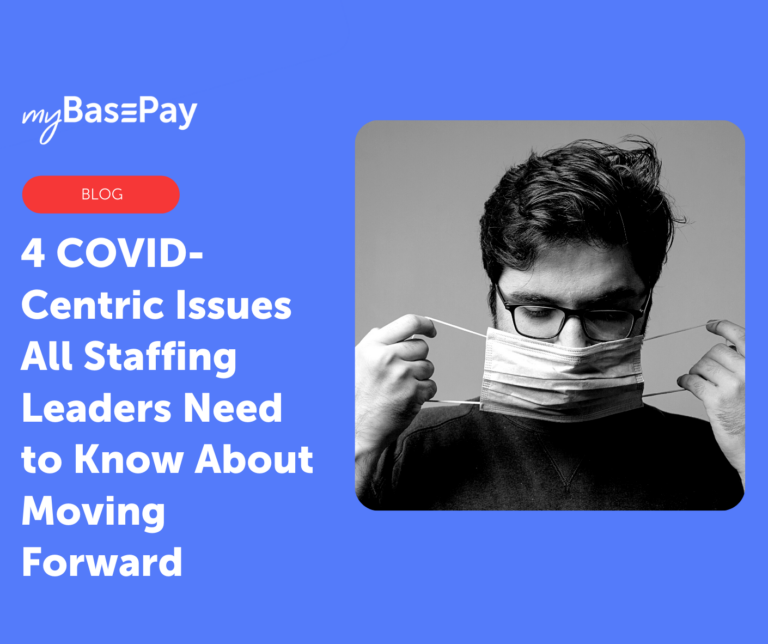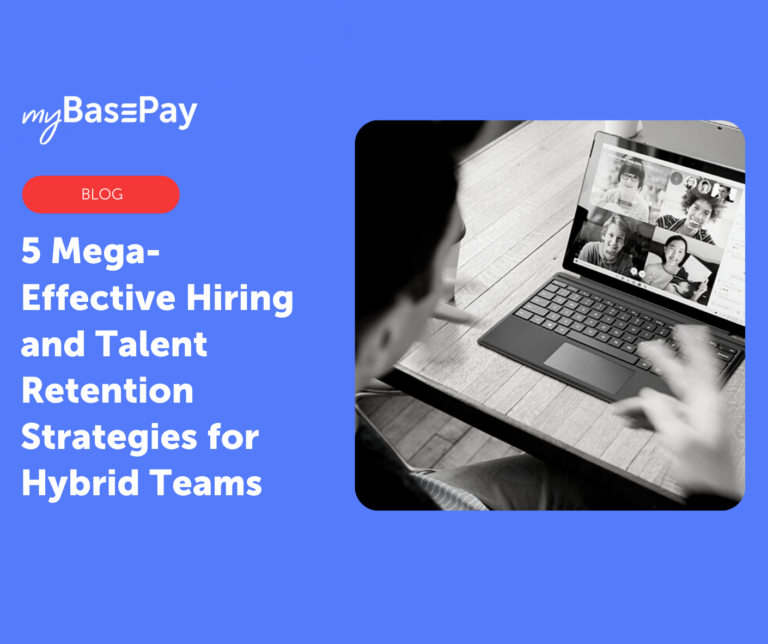5 of the Best Payroll Funding Solutions for Staffing Firms
One of the biggest challenges any staffing firm will face is how to properly manage its cash flow. A positive cash flow is essential for conducting a wide range of business tasks — but perhaps most importantly, ensuring that payroll is met for your employees and contractors on time.
Even when you have a legitimate cash flow issue, running payroll late can have serious consequences. Late payments can lower worker morale, and cause contractors to become disengaged or even decide not to work with you anymore. When payroll for full-time employees is run late, your business could also be subjected to the 941 late filing penalty with the IRS.
To avoid these issues, staffing firms will often turn to payroll funding solutions. The following solutions can help ensure that you have sufficient cash flow to run payroll on time, every time so that you can maintain the lifeblood of your business — though not all solutions are created equal.
1. Lines of Credit
A line of credit is the most basic payroll funding option used by staffing agencies and other businesses. These flexible loans allow companies to draw from their credit lines as needed to address short-term financial needs, such as covering payroll.
A business line of credit works very similar to a credit card, where money is drawn upon as needed. The business is given a credit limit (the max amount of money they can draw upon). As the business repays the debt and any accumulated interest, the amount of available credit increases accordingly. Failure to repay the loan would allow the lender to claim other property (such as ownership of the business) as collateral.
Because of the high amount of money typically needed for a business line of credit, lenders typically require a company to be in business for at least 6 months and to have a minimum annual revenue of at least $25,000. A lengthy application process can sometimes make it challenging to request a credit line increase when business spikes.
2. Factoring
Invoice factoring, also known as payroll financing, is another commonly used option for securing payroll funding. In this process, staffing agencies partner with a third-party company to get some money from open invoices sooner.
The factoring agency sends the staffing agency a high percentage of the invoice value upon receipt of the open invoice (typically 80 to 90 percent). After the invoice payment is received by the factoring agency, they will then remit the remaining invoice balance to the staffing company.
Of course, the factoring agency will take out a significant fee from the invoice, which ultimately lowers the staffing agency’s total profit margins. Without the full value of the invoice available upfront, some agencies may still experience cash flow struggles, particularly for projects where payment won’t be received until several weeks (or even months) in the future.
3. Self-Funding
Self-funded business owners have a tendency to try to pull themselves up by their own bootstraps — including when managing payroll funding. In these scenarios, the business owner will tap into the company’s own cash reserves to ensure that payroll is met.
This payroll funding model offers limited liability, and helps the company avoid additional fees, since no third parties are involved. While this can help the staffing agency maintain profitability, self-funding can quickly become unsustainable after a period when clients haven’t paid invoices.
As the cash reserves are gradually drained, the business’s growth opportunities will become limited. Staffing agency owners in this scenario won’t have the extra funding available for marketing or other crucial growth tasks. If the problem persists, the cash reserves could eventually run out, leaving cash flow in the negative and leaving the business owner forced to turn to another solution.
4. Back-Office Payroll Funding
Traditional back-office payroll funding can help alleviate many of the back-office concerns associated with meeting payroll. These providers typically offer automated funding support, while also helping limit liability for the staffing agency.
Payments are generally sent to the staffing agency at the same time that payroll is processed. The back-office services provider may also help the staffing agency submit invoices to its clients, further reducing the strain of back-office paperwork. This leaves agency leaders free to focus on placing talent and making sales with clients to continue growing their business.
While back-office payroll funding can ensure that payroll is adequately covered, the staffing agency must typically still wait on invoice receivables terms before they receive payment. The lack of upfront profit can limit the viability of these solutions in some circumstances.
5. Advanced Funding
Advanced funding solutions aim to directly solve the inefficiencies of traditional back-office payroll funding. Advanced funding provides a comprehensive financial infrastructure that includes credit research, financial dashboard analytics, complete ownership of collections, branded invoices and other advanced funding options.
The advanced funding process ensures that the payroll partner will provide funding and commission each week that payroll is processed — essentially managing the “qualification” side of things so the staffing agency can get paid. This includes activities such as complimentary credit checks, approval of project funding based on project details, and providing upfront profit commission to manage ongoing worker payroll needs.
With proactive communications, staffing agencies can collect receivables faster all while enjoying limited liability, no reserves or additional fees and automated funding support. With upfront profit and even the ability to pay third-party partners on your behalf, advanced payment solutions are well situated to meet a wide variety of payroll funding needs in a segmented market.
Let myBasePay Advanced Funding Alleviate Your Payroll Worries
Payroll funding can be stressful for staffing agencies, but it doesn’t have to be. myBasePay Advanced Funding provides the financial infrastructure that will allow you to support the needs of your contingent workers and meet client demands.
With an all-inclusive funding model that provides funding and commission when payroll is processed, you will be better equipped to free up liquidity to invest in top talent and key growth activities such as marketing. Automated funding support, upfront profit and other advantages will allow you to scale faster than the competition while keeping cash flow in the positive.
Author: Cesar Jimenez, myBasePay CEO
Cesar A. Jimenez is an entrepreneur, investor, and military veteran with over 25 years of staffing industry expertise successfully leading technology staffing organizations. His expertise in the IT industry allows him to use his experience as a thought leader for talent acquisition, staffing, IT, and recruitment technologies with a passion for contingent workforce solutions. Cesar has held various leadership roles for both a global staffing organization and technology solutions companies. This expertise has enabled him to develop alternative workforce models that provide the agility for organizations to be competitive in today’s marketplace. In his spare time, he enjoys spending time with hisfamily, working out, and coaching high school baseball players.






